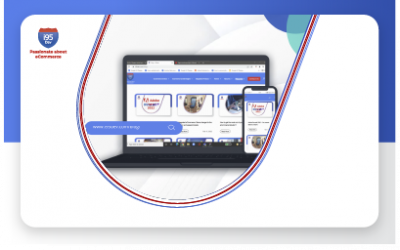One of the biggest challenges business owners face is hiring the right team that can help steer towards their eCommerce goals. Managing an eCommerce business comes with several roles and responsibilities. Right from the product, market strategies, customer service, and web development to content generation, it is quite clear that all these roles require a specific set of skills and, most importantly, an extensive industry experience.
To reach the desired goals, you need to find and recruit professionals with supreme skills to succeed in your eCommerce journey.
This blog post will help you understand the key roles and profiles that play an important role in the success of your eCommerce business.
Role # 1: Director of eCommerce
The director of eCommerce is responsible for looking after overall eCommerce operations. This profile requires extensive years of experience with a deep understanding of every aspect of the eCommerce business flow.
As the head of the eCommerce team, the director is expected to be a forward thinker and an analytical leader who can help your brand achieve its goals.
Director of eCommerce: skills and responsibilities
- Plans all the strategic eCommerce dimensions.
- Brings the most out of marketing, sales, technology, and creativity collectively.
- The director manages all the systems involved in the eCommerce business flow. Like product information management (PIM), mobile device management (MDM) software, product experience management (PXM)
- Oversees customer/user experience including promotions, navigation to checkout funnel.
Role # 2: eCommerce Manager
An eCommerce manager is similar to a project manager who looks after every bit of the eCommerce business process. One who has exceptional organizational skills and product knowledge is the most suitable for this role as they must take care of the product catalog management team and other responsibilities.
eCommerce manager: skills and responsibilities
- Certified eCommerce/project management professional or similar certifications is an added advantage
- Should be a multitasker with the ability to adapt and prioritize eCommerce processes with agility.
- Prominent ability to work in a fast-paced environment
- Responsible for managing the relations with key stakeholders along the eCommerce lifecycle
- Excellent reporting skills to update all the top-level management informing the whereabouts of the processes
- Brilliant communication skills are required
Role # 3: Marketing Manager
A marketing manager must have rich experience in all aspects of marketing. This role involves both core marketing anddigital marketing skills Digital marketingin itself is a vast subject that involves both technical and creative skills.
Please note that marketing manager roles and responsibilities also depend on the size of your business. Many organizations have combined roles like content marketing, SEO manager, channel-based marketing, graphic and creative management, etc., all under the marketing manager position.
Marketing manager: skills and responsibilities
- Skilled in inbound and outbound marketing , good enough to pull and retain customers
- Supervises all the paid and organic marketing channels
- Extensive experience in working closely with merchandising manager to deliver promotions in various marketing channels
- Good knowledge of the market segments, customer personas, and mapping customer journeys
- Assist the sales team on client calls with detailed product/services features and benefits
- Rich written and communication skills are required, as this role involves intensive presenting, showcasing, and selling ideas.
Role # 4: Web Developer/ Graphic Designer/ Content Creators
The role of web developer requires practical web development abilities with an eye on designing elements. A web developer is the one who brings life to your brand, product-related information, and all the website content. It would require collaboration with graphic designers, product marketers, and other internal stakeholders.
Content creation professionals need to be well aware of your product and services along with a sense of creativity and skill in various content forms, while graphic designers should have the good technical knowledge to present the content creatively.
Role # 5: eCommerce Business Analyst
The eCommerce business analyst role needs a deep understanding of metrics. This role monitors thekey performance metrics(KPI’s) and your position against competitors.
eCommerce business analyst: skills and responsibilities
- Responsible for presenting all the numbers, facts, and figures that help project stakeholders and executives for decision making.
- Should be skilled enough to draw conclusions based on the KPI’s identified and on a timely basis, notify the higher management to make the further necessary changes
- Effectively communicates eCommerce businesses’ performance, including visits, click-through-rate, conversion rates, etc.
Role # 6: IT Manager
Managing the technical side of an eCommerce business is as important as the front-end. The IT manager should be well aware of the best technology, architecture, security, etc.
IT manager: skills and responsibilities
- Is responsible for purchasing and implementing new software and applications beneficial for the eCommerce business processes
- Builds suitable architecture for the website
- Should have the ability to ensure smooth day-to-day operations of the website and related technical bits
- Builds and executes IT strategy
- Understanding of systems like PIM, MDM, DAM, etc
Role # 7: Customer Service Director
A customer service director looks after all the customer service activities. This involves post-sales services and customer satisfaction. Also, it takes care of fulfillment and quality control.
Customer service director: skills and responsibilities
- Establishes policies and procedures with industry best practices
- Ensures there are proper systems in place to capture customer feedback, make strategies based on the customer insights
- Should have the ability to align the customer service activities to the organization’s goals
- Should be able to set service level standards concentrated on better response time and issue resolution
Role # 8: Inventory Manager
The role of an inventory manager often involves overseeing inventory and merchandise management to ensure streamlined & synchronized inventory information all over. The inventory manager might also oversee a team of inventory associates who are responsible for the inventory packaging , organizing and other activities.
Inventory Manager: skills and responsibilities
- Excellent methods of data analysis & forecasting along with expertise on inventory management softwares.
- Optimize inventory management and keep track of all the activities.
- Ensure adequate stock and availability & monitor distribution channels
- Evaluate suppliers on a timely basis to ensure meeting business objectives
Above mentioned eCommerce roles are the most important positions required to set-up your business.
For more detailed description of the roles and responsibilities, stay tuned for our upcoming ebook on key roles and profiles for eCommerce success.
Want to steal the information before the ebook is live? Contact us now at info@i95dev.comor call us at 301.760.7499
Recent Blogs
Enhancing Shipping Precision with Custom Shipping Groups in Adobe Commerce/ Magento
Enhancing Shipping Precision with Custom Shipping Groups in Adobe Commerce/ Magento Author Category Share Three things matter the most when it comes to eCommerce shipping: speed, accuracy,...
Managing Massive Product Catalogs: Why Synchronization is the Key to Efficiency
Managing Massive Product Catalogs: Why Synchronization is the Key to Efficiency Author Category Share The automotive aftermarket industry is vast and highly competitive, requiring businesses...
A Complete Guide to Seamlessly Integrating Adobe Commerce with NetSuite
A Complete Guide to Seamlessly Integrating Adobe Commerce with NetSuite Author Category Share Integrating Adobe Commerce (formerly Magento) with NetSuite ERP can transform the way businesses...




